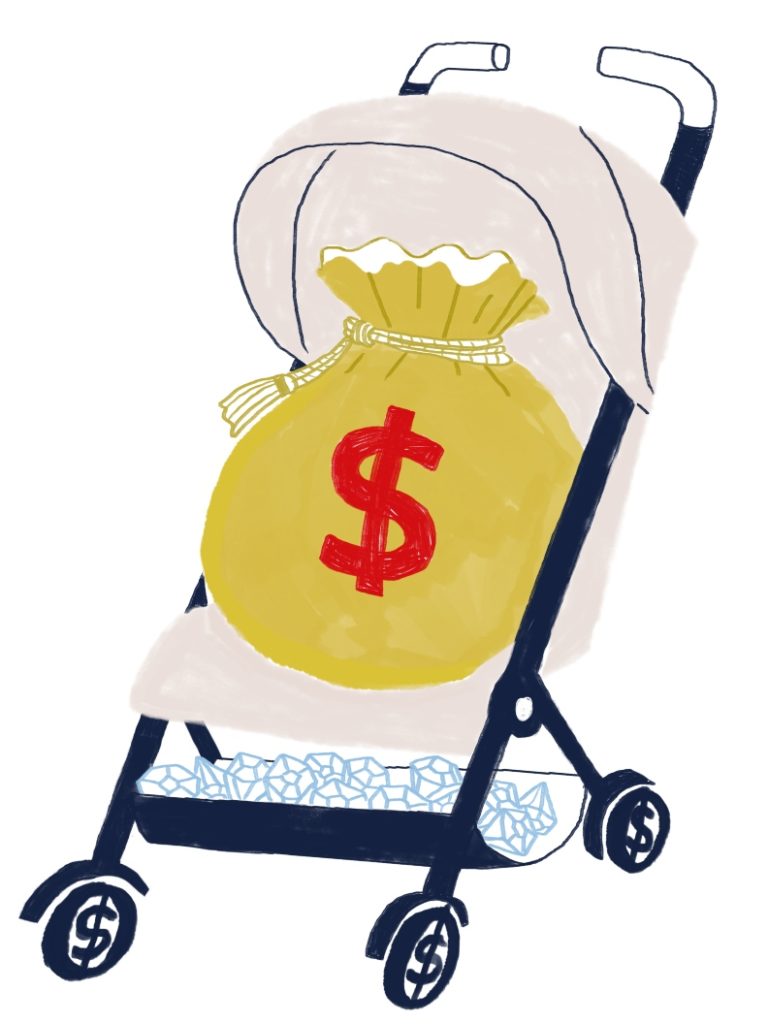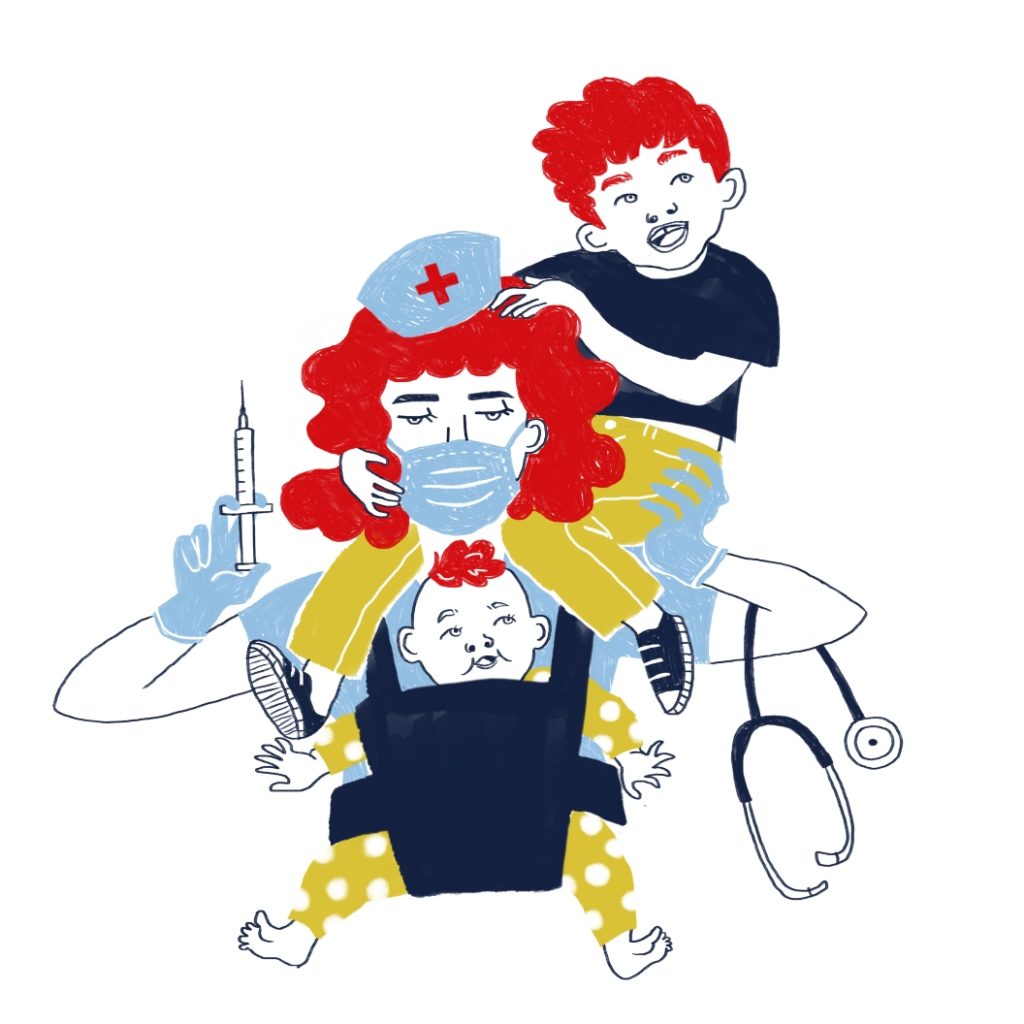Motherhood takes different forms for the modern woman, especially in 2020, when motherhood meant something different than it did pre-pandemic.
By Allie Justis, Illustrations by Jessica Wetterer
24%

In a 2020 poll of 4,400 adults conducted by Morning Consult, 24% said that money was a major reason they chose not to have a child. Of those adults, 38% were millennials who said they felt it was too expensive to raise a child.
23.5 Million

In 2018, the U.S. Census Bureau found that 23.5 million women were working while also supporting children. A significant amount of working mothers have jobs within the educational system or the healthcare industry, both of which took a major hit during the pandemic.
66.7%

Of the 23.5 million working mothers in America, two thirds of those women are also working full-time careers in addition to being mothers. However, women with children under 6 years old were found to make up less of the labor force, only making up 78% of full-time working mothers.
80%

In 2019, the U.S. Census Bureau said that out of 11 million single-parent households, single mothers headed 80%. Single-mother households are also more common for low-income families, with about 30% of single mothers living in poverty in 2017.
$1,861
For women who continue to work after having the first child, the U.S. Census Bureau found there a temporary drop in earnings of about $1,861 on average in the first quarter after pregnancy, compared to a mother’s pre-pregnancy earnings.


